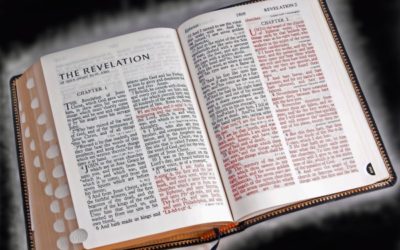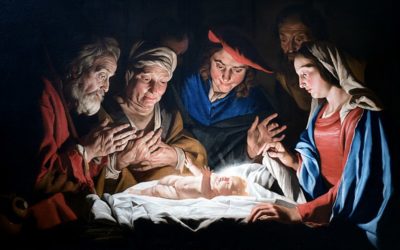During the week after Doctrine and Covenants 59 was given, three other revelations followed to guide those returning from Missouri to the places from which they had come. These three revelations, now Doctrine and Covenants sections 60 through 62, helped guide the travelers safely home and directed them to use to their travel time to best advantage in advancing the work of the Lord. These sections also teach lessons that apply to us today.
Doctrine and Covenants 60
Some of those directed to visit Missouri in 1831 were sent to stay there. Others were just temporary visitors and were commanded to return to their homes elsewhere until steps could be taken in Zion to accommodate them. As the current headnote to section 60 explains, on August 8, 1831, “the elders who had traveled to Jackson County and participated in the dedication of the land and the temple site desired to know what they were to do.”
In answer to their inquiry, the Lord commended them for coming but chastised those who had avoided missionary opportunities while traveling to Missouri. “It pleaseth me, that you have come up hither,” the Lord said to the elders generally. “But with some I am not well pleased, for they will not open their mouths, but they hide the talent which I have given unto them, because of the fear of man.” (Verses 1‒2.) “If they are not more faithful unto me,” He warned, “it shall be taken away, even that which they have” (verse 3). This warning paralleled what Jesus said in the parable of the talents (Matthew 25:28‒29).
To their questions about travel, the Lord told the elders (much as he did the Jaredites and later Lehi’s family) to journey by boat. In this case, however, he said the “craft” could be “made, or bought, as seemeth you good, it mattereth not unto me” (verse 5). This answer makes a point that is still important to us today. Sometimes the Lord gives us specific directions about what to do. At other times, he tells us the result He wants and lets us come up with the method, much as he did with the Brother of Jared when he asked about lighting his barges (Ether 2:25).
The Lord told the men to go to St. Louis by water (Doctrine and Covenants 60:5). He commanded Joseph Smith, Oliver Cowdery, and Sidney Rigdon to go from there to Cincinnati and “declare my word with loud voices, without wrath or doubting” (verses 6‒7). The rest of the elders were to “take their journey from St. Louis, two by two, and preach the word, not in haste, among the congregations of the wicked” (verse 8) on their way home.
In short, he wanted them to do missionary work as opportunities became available, a lesson for all of us today.
The Lord gave the same direction to those coming to the land of Zion. “Behold,” He said, “they have been sent to preach my gospel among the congregations of the wicked; wherefore, I give unto them a commandment, thus: Thou shalt not idle away thy time, neither shalt thou bury thy talent that it may not be known” (verse 13). Most of those coming to Missouri at that time were not intended to stay until provision could be made for them. The Lord instructed them, “And after thou hast come up unto the land of Zion, and hast proclaimed my word, thou shalt speedily return, proclaiming my word among the congregations of the wicked, not in haste, neither in wrath nor with strife” (verse 14).
That was another good lesson for them and us today. In doing missionary work, we are not to contend but to present the gospel in love to those we meet.
If people rejected them, the Lord authorized the missionaries to “shake off the dust of thy feet” as a testimony against them (verse 15) as He had instructed his New Testament disciples (see Matthew 10:14, Luke 9:5) But He did not want them provoking people and told them to do it “in secret” (verse 15).
For additional historical information on this section, click here.
Doctrine and Covenants 61
The returning elders started as the Lord directed and on August 12, 1831, reached a bend on the Missouri River where they paused. There on the riverbank, Joseph received another revelation that is now section 61 of the Doctrine and Covenants. Rather than acquire a single craft for the trip, they had opted to travel by canoe, a much more dangerous prospect on a wild river like the Missouri in those days. As the headnote to the section explains, “On the third day of the journey, many dangers were experienced. Elder William W. Phelps, in a daylight vision, saw the destroyer riding in power upon the face of the waters.”
The elders’ decision to use multiple canoes instead of the “craft” (singular) that the Lord commanded in section 60 was probably not wise under the circumstances. But He tolerated their mistakes, saying to them, “I, the Lord, forgive sins, and am merciful unto those who confess their sins with humble hearts” (verse 2).
“But verily I say unto you,” He added patiently, “that it is not needful for this whole company of mine elders to be moving swiftly upon the waters, whilst the inhabitants on either side are perishing in unbelief” (verse 3).
Subsequent lines in the section explain how He had decreed “many destructions upon the waters” (verse 5) but that “all flesh is in mine hand, and he that is faithful among you shall not perish by the waters” (verse 6). “And now I give unto you a commandment that what I say unto one I say unto all,” verse 18 directs, “that you shall forewarn your brethren concerning these waters, that they come not in journeying upon them, lest their faith fail and they are caught in snares.”
This warning made sense under the circumstances of their day. Even today, the Missouri River at flood stage can cause tremendous damage and be very dangerous. But in Joseph Smith’s day, it was even worse since between now and then, the river has been subjected to massive flood control measures to create reservoirs and otherwise control the flow of water. The Missouri River in Joseph’s day was a wild river, one that could easily kill travelers emigrating to Zion, especially during the run-off period.
Some Church members over the years have misinterpreted these verses to mean that missionaries, in particular, should not travel by water. But as the Come, Follow Me section for this revelation points out, “This warning should not be interpreted to mean that we should avoid traveling by water. The Lord has ‘all power,’ including power over the waters (verse 1).”
For more historical information on this section, including particularly the unnavigable nature of the Missouri River during much of the year in those days, click here.
Doctrine and Covenants 62
Doctrine and Covenants sections 60 and 61 emphasize the importance of having the elders do missionary work as they travel. That same message comes home again in section 62, a revelation Joseph Smith received at Chariton, Missouri, on August 13, 1831, when he and his traveling companions ran into some elders traveling to Zion.
In this revelation, the Lord blessed the elders who had been preaching as they traveled, telling them “the testimony which ye have borne is recorded in heaven for the angels to look upon; and they rejoice over you, and your sins are forgiven you” (verse 3). The connection between exercising faith and being forgiven is not coincidental. True repentance includes a commitment to keep all of God’s commandments, one of which is to share the gospel with others.
To the elders who were traveling to Zion, the Lord gave the same instructions He had given to others: “Assemble yourselves upon the land of Zion; and hold a meeting and rejoice together, and offer a sacrament unto the Most High. And then you may return to bear record, yea, even altogether, or two by two, as seemeth you good, it mattereth not unto me; only be faithful, and declare glad tidings unto the inhabitants of the earth, or among the congregations of the wicked.” (Verses 4‒5.)
For additional historical information on this section, click here.
Credit for the image at top of post: George Caleb Bingham, The Jolly Flatboatmen, 1846, National Gallery of Art, public domain, copied from https://www.kcur.org/arts-life/2015-06-10/the-missouri-as-muse-painters-and-photographers-are-drawn-to-the-river (accessed May 30, 2021).



